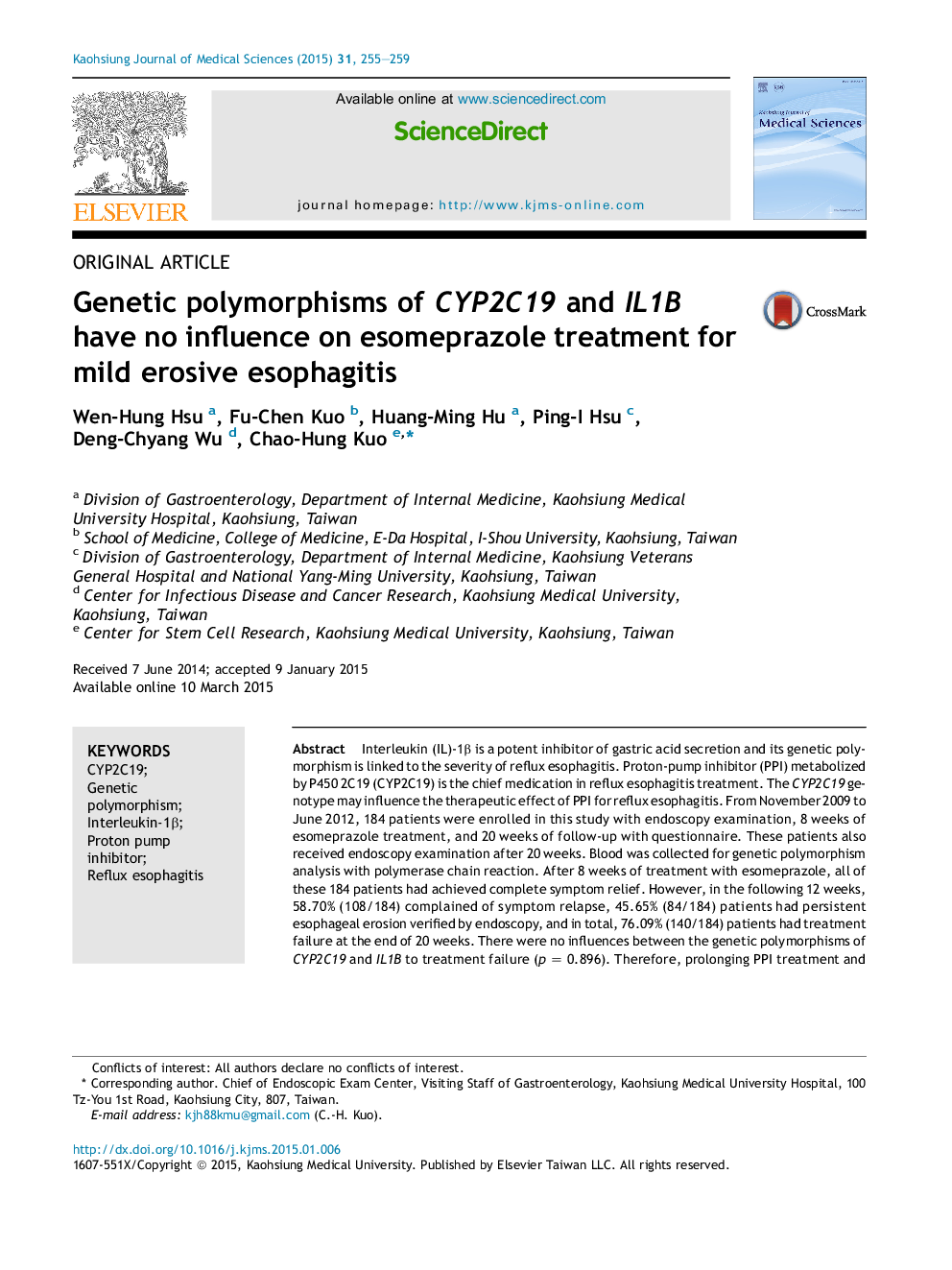| Article ID | Journal | Published Year | Pages | File Type |
|---|---|---|---|---|
| 3485205 | The Kaohsiung Journal of Medical Sciences | 2015 | 5 Pages |
Interleukin (IL)-1β is a potent inhibitor of gastric acid secretion and its genetic polymorphism is linked to the severity of reflux esophagitis. Proton-pump inhibitor (PPI) metabolized by P450 2C19 (CYP2C19) is the chief medication in reflux esophagitis treatment. The CYP2C19 genotype may influence the therapeutic effect of PPI for reflux esophagitis. From November 2009 to June 2012, 184 patients were enrolled in this study with endoscopy examination, 8 weeks of esomeprazole treatment, and 20 weeks of follow-up with questionnaire. These patients also received endoscopy examination after 20 weeks. Blood was collected for genetic polymorphism analysis with polymerase chain reaction. After 8 weeks of treatment with esomeprazole, all of these 184 patients had achieved complete symptom relief. However, in the following 12 weeks, 58.70% (108/184) complained of symptom relapse, 45.65% (84/184) patients had persistent esophageal erosion verified by endoscopy, and in total, 76.09% (140/184) patients had treatment failure at the end of 20 weeks. There were no influences between the genetic polymorphisms of CYP2C19 and IL1B to treatment failure (p = 0.896). Therefore, prolonging PPI treatment and further lifestyle modification might be warranted for symptomatic mild esophagitis. There were no relationships between IL-1β and CYP2C19 in the treatment effect in mild reflux esophagitis.
